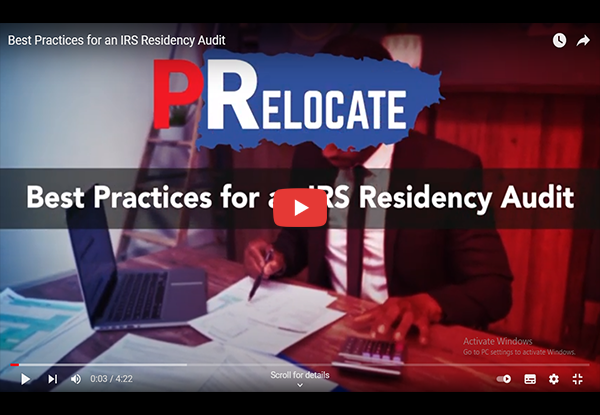How 1031 Exchanges Work in Puerto Rico
- Posted: August 21, 2018
- Posted by: Travis Lynk
- Last Reviewed: May 21, 2021

This is a guest post by Dave Foster of the1031investor.com
How 1031 Exchanges Work in Puerto Rico
The United States encompasses quite a few bits of land around the world. From the U.S. Virgin Islands in the Caribbean to Guam in Micronesia, American soil stretches far. But how far around the world can a 1031 real estate exchange go?
Where do 1031 exchanges work?
The Northern Marianas, Guam, and the U.S. Virgin Islands are all listed as viable locations to carry out a U.S. to U.S. 1031 exchange thanks to a series of government treaty interpretations and regulations last updated in 2005. However, Puerto Rico is not included on this list of coordinated territories. Meaning that while Puerto Rico is most certainly a United States Territory, you cannot carry out a 1031 exchange selling within the 50 United States and purchasing there.
While this might be disappointing for an investor eying Puerto Rico as a potential place for investment, there may be alternative ways to get the most out of investing in the islands.
Other options for Puerto Rico
Of course, an investor could simply decide to forgo the tax deferral of the 1031 exchange for a potentially more lucrative offshore opportunity. Common wisdom is to not let the “tax tail wag the dog.” In other words, don’t forgo greater potential returns simply to save less money come tax season.
However, there are also a couple of ways to have your tax deferral cake and eat it too. For someone desiring to keep the tax deferral inside their 1031 activity, it is still possible to complete a 1031 domestically and then refinance to pull cash out to invest in Puerto Rico. Proceeds from a cash-out refinance are not taxable. All tax would still be deferred inside the 1031 and the cash generated is now free to be deployed wherever the investor desires.
Another option that is now available is to use the cash to invest in something called a “Qualified Opportunity Zone.” Qualified Opportunity Zones were created recently as part of the Tax Cuts and Jobs Act bill of December 22, 2017. Established to stimulate community development, the zones are set up to attract long-term investors with alluring tax benefits. Investments in areas of states that have been deemed economically distressed will be granted a new tax break that lets investors reduce, defer, and potentially eliminate capital gains taxes with investments into Opportunity Funds. While some of the tax benefits are available to investors immediately, Opportunity Zones are designed to encourage investors to stay long term. Investors that remain a full ten years in an Opportunity Zone will receive the most tax incentives.
To qualify, an area must have at least a 20% poverty rate to be an Opportunity Zone, and the average income within the zone must be lower than 80% of the state’s median income. While states have a limited number of areas that may be classified as an Opportunity Zone, the whole of the islands of Puerto Rico is designated as a Qualified Opportunity Zone. This means that any investment in Puerto Rico can now be a tax-free activity for those who keep their capital there using the structure of the Qualified Opportunity Zone.
Investors can defer taxes on prior gains until at least December 31, 2026, as long as the gain is then reinvested in a Qualified Opportunity Fund.
Regulations and interpretations are being issued almost weekly, including guidance on elimination and not just deferral of the capital gain from investing in a Qualified Opportunity Zone. Stay tuned – Utilizing Opportunity Zones may be the next great way to maximize one’s real estate investing while having a positive impact on communities in need.
Disclaimer: Neither PRelocate, LLC, nor any of its affiliates (together “PRelocate”) are law firms, and this is not legal advice. You should use common sense and rely on your own legal counsel for a formal legal opinion on Puerto Rico’s tax incentives, maintaining bona fide residence in Puerto Rico, and any other issues related to taxes or residency in Puerto Rico. PRelocate does not assume any responsibility for the contents of, or the consequences of using, any version of any real estate or other document templates or any spreadsheets found on our website (together, the “Materials”). Before using any Materials, you should consult with legal counsel licensed to practice in the relevant jurisdiction.
More Articles
-
How Puerto Rico Is Improving Its Infrastructure for New Residents

Read MoreJuly 23, 2025 -
Best Practices for an IRS Residency Audit

Read MoreJuly 13, 2021



